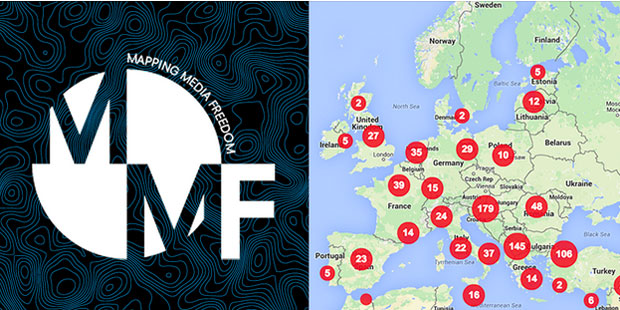Letter: EU must not ignore collapse of media freedom in Turkey
The President of the European Council
Donald Tusk
General Secretariat of the Council of the European Union
Rue de la Loi/Wetstraat 175
B-1048 Bruxelles/Brussel
Belgique/België
CC:
Federica Mogherini, High Representative of the European Union for Foreign Affairs and Security Policy
Stavros Lambrinidis, EU Special Representative for Human Rights
Elmar Brok, Chair of the European Parliament Committee on Foreign Affairs
Johannes Hahn, Commissioner for European Neighbourhood Policy and Enlargement Negotiations
Martin Schulz, President of the European Parliament
Dear President Tusk,
We, the undersigned press freedom and media organisations, are writing ahead of the upcoming meeting between EU leaders and Ahmet Davutoğlu, Prime Minister of Turkey, to express our concern over the collapse of media freedom in Turkey.
In the past six months, we have recorded 50 incidents in clear breach of international standards with regards to media freedom and pluralism in the country.[1] These violations include the recent government takeovers of the Feza media group and the Koza İpek Group; the prosecution and jailing of daily Cumhuriyet editor-in-chief Can Dündar and Ankara bureau chief Erdem Gül on politically motivated charges of terrorism, espionage and revealing classified information; the police raids of Bugün TV; the assault of journalist Ahmet Hakan; and the blocking of Dicle News Agency’s website.
Many of these violations took place against the backdrop of the migration and refugee crisis or are related to reporting on sensitive issues such as the banned Kurdistan Workers’ Party (PKK) or Turkey’s security operations in the south. Hence we believe the Council has the mandate to address these violations during the specific working session on EU-Turkey cooperation.
This mandate stems from the Council’s commitment to the rights to freedom of expression including freedom of the press, which was reaffirmed when adopting the EU Human Rights Guidelines on “freedom of expression online and offline” on 12 May 2014.[2] By doing so, the Council pledged that “through its external policy instruments, the EU intends to help address and prevent violations of these rights in a timely, consistent and coherent manner.”
The guidelines also state that “all appropriate EU external financial instruments should be used to further protect and promote freedom of opinion and expression online as well as offline.”
While we welcome the fact that you discussed the situation of the media in Turkey with Prime Minister Davutoğlu last week, we believe the EU must not reach a deal without a specific conditionality clause that requires Turkey to improve the environment for freedom of expression and freedom of the media.
When meeting Prime Minister Davutoğlu on 18 March 2016, you have the unique opportunity to not only discuss the press freedom situation in Turkey, but to bring forth concrete measures that Turkey ought to take in order to start reversing its unrelenting crackdown on the media. Without taking these measures Ankara cannot and must not be considered a trustful strategic partner for the European Union. Specifically, we ask that you make any EU-Turkey agreement conditional on the release of the more than dozen journalists currently jailed for their work;[3] the immediate return of the media outlets belonging to the Feza and Koza İpek groups to their rightful owners and editorial boards; and the abandonment of Turkey’s official practice of using vague anti-terror laws to equate press coverage with criminal activity.
At a time when the very essence of the European Union is questioned, it is critical to show unity and coherence over one of its core foundations: human rights, and in particular freedom of opinion and expression, which are fundamental elements of democracy.
Yours sincerely,
Jodie Ginsberg, Chief Executive, Index on Censorship
David Diaz-Jogeix, Director of Programmes, Article 19
William Horsley, Vice President and Media Freedom Representative, Association of European Journalists
Nina Ognianova, Europe and Central Asia Program Coordinator, Committee to Protect Journalists
Jo Glanville, Director, English Pen
Mogens Blicher Bjerregård, President, European Federation of Journalists
Barbara Trionfi, Executive Director, International Press Institute
Carles Torner, Executive Director, PEN International
Christophe Deloire, Executive Director, Reporters Without Borders
Deborah Bonetti, President, Foreign Press Association in London
[1] www.mappingmediafreedom.org (verified reports from 1 October 2015 to 14 March 2016)
[2] EU Human Rights Guidelines on Freedom of Expression Online and Offline, adopted by the Council on 12 May 2014 (Foreign Affairs Council meeting)
[3] At least 28 journalists jailed in Turkey (last update: 26 February 2016). Source: European Federation of Journalists and affiliates, http://europeanjournalists.org/journalists-in-jail-europe/

